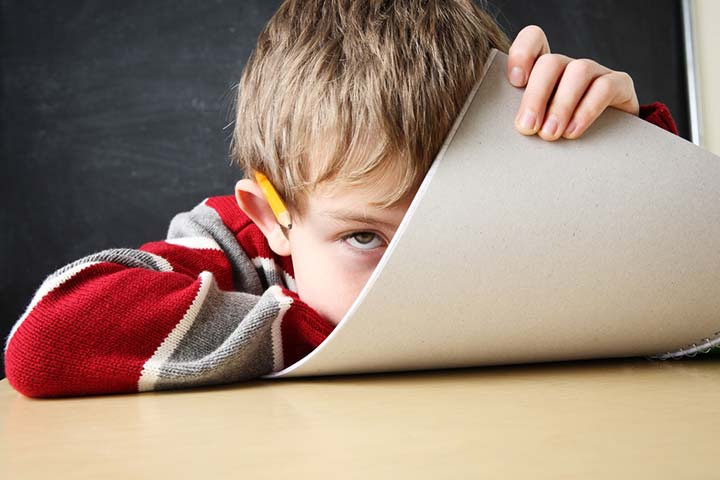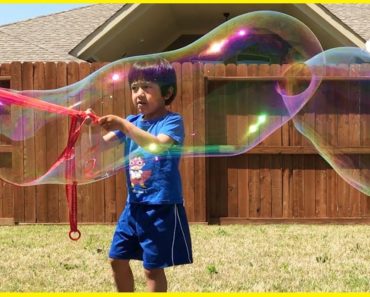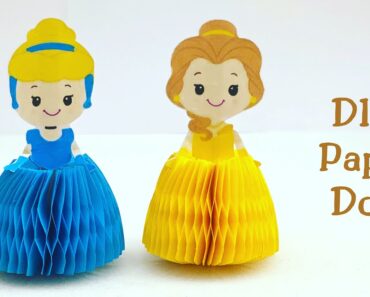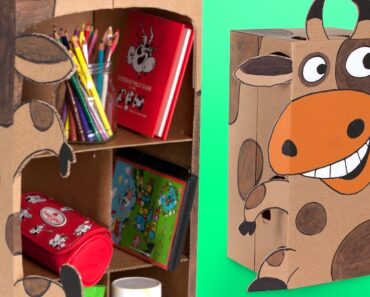Attention deficit hyperactivity disorder (ADHD) is a common mental health disorder that affects nearly 5 to 7 percent of school-aged children. Although ADHD develops before age seven, the symptoms may go unnoticed until the child encounters specific academic and social situations.
Children with ADHD may show symptoms of inattention, impulsivity, or hyperactivity. Hyperactivity may improve in childhood, but other ADHD symptoms can continue through adolescence and adulthood in many cases.
If left unmanaged, children with ADHD may have a higher risk for problems in education, peer relationships, employment, and certain mental health disorders than others.
Read this post to know more about the symptoms, causes, risk factors, complications, diagnosis, and treatment options for ADHD in children.
Symptoms Of ADHD In Children
ADHD symptoms can impact a child’s adaptive functioning in both school and home environments. The signs and symptoms of ADHD can be categorized into three groups, and they may vary in each child.
1. Inattention
Lack of attention is seen in many children with ADHD. The following signs and symptoms are associated with inattention.
- Short attention span or problems in sustaining attention
- Difficulty paying attention to details
- Trouble listening to others
- Poor academic performance
2. Impulsivity
Impulsivity refers to the tendency to act without thinking about what the result will be. The following signs and symptoms of impulsivity are seen in children with ADHD.
- Interrupting others often
- Blurting out answers before waiting for their turn
- Taking risks without thinking about the consequences
- Impatience while waiting for their turn in school and social games
3. Hyperactivity
Some children may have hyperactivity symptoms with ADHD. This is a state of being abnormally active. Common ADHD signs and symptoms of the hyperactive category in children may include
- Always being in some kind of motion, such as running and climbing
- Difficulty engaging in quiet activities
- Difficulty remaining on their seats
- Forgetting or losing things often
- Excessive movements with hands or feet (fidgets)
- Shifting from one task to another without completing any of them
Based on the signs and symptoms that are predominant in a child, ADHD can be of three types, including predominantly inattentive presentation, predominantly hyperactive-impulsive presentation, and combined presentation.
These signs and symptoms can also be seen in some behavioral problems and medical conditions. Thus, seek medical advice for an exact diagnosis.
Positive Effects Of ADHD In Children
ADHD does not interfere with a child’s talent or intelligence. The following positive effects are often seen in children with ADHD.
- Creativity: Children with ADHD can be highly creative and imaginative. They usually come up with lovely ideas and are often artistic. Although some children can be easily distracted, most observe what others don’t notice.
- Flexibility: Children with ADHD can be open to various ideas and flexible to changes.
- Enthusiasm and spontaneity: Children with ADHD have enthusiastic and lively personalities. They can be curious about different things, and they rarely get bored.
- Drive and high energy: Children with ADHD can work hard and strive for success if motivated and directed correctly. It is difficult to distract them once they are interested in something, especially hands-on and interactive activities.
Many children with ADHD have been known to shine in various fields. Their ability to focus and work hard on what is interesting to them helps them reach heights. Identifying and encouraging their talents can help reduce the symptoms of ADHD as well.
Risk Factors And Causes Of ADHD In Children
The exact causes and risk factors for ADHD are unknown. However, researchers believe that genetic factors may play a role in ADHD development. According to the Centers for Disease Control and Prevention (CDC), the possible risk factors and causes of ADHD include
- Maternal alcohol and tobacco use during pregnancy
- Exposure to environmental toxins such as lead, pesticides, and polychlorinated biphenyls (PCBs) during pregnancy and at a young age
- Maternal hypertension (high blood pressure) and mental health disorders
- Exposure to pesticides and polychlorinated biphenyls (PCBs) during fetal life or at a very young age
- Positive family history of ADHD
- Gender – boys are at a higher risk than girls
Widely held views that ADHD is caused by eating more sugar, watching too much television, parenting, or social and environmental factors such as poverty or family problems are not scientifically proven. Some of these factors may worsen the symptoms in some children, but there is not enough evidence to consider them as the primary causes of ADHD in children.
Complications Of ADHD In Children
According to the CDC, ADHD can be associated with the following conditions and concerns.
- Conduct or behavioral problems: Children with ADHD are at an increased risk for developing conduct disorders, which may manifest in them showing violence towards others, violating rules, lying, stealing, or damaging property.
- Anxiety: Children with ADHD are vulnerable to anxiety disorders. Separation anxiety (fear of being away from family) and social anxiety (fear of meeting people) are often seen in many cases. Some children may also have general anxiety, that is, the fear of something bad happening to them.
- Depression: Children with ADHD are more likely to be diagnosed with persistent hopelessness and sadness than other children. These depression signs can be due to their inability to control ADHD symptoms and their effects on academic performance, social life, and family life.
- Learning disorders: Dyslexia (reading difficulty), dysgraphia (writing difficulty), and dyscalculia (math difficulty) are examples of learning disorders in children. Children with ADHD often face problems paying attention and being organized, which can affect their academic performance.
- Risk of injuries: Inattentive and impulsive behavior can make a child with ADHD more vulnerable to injuries during activities.
- Difficult peer relationship: Some children with ADHD can have issues with peer relationships. The exact cause of these social problems is not known. However, their shyness or withdrawn behavior can be a reason for poor peer relationships in some cases.
A comprehensive evaluation by a pediatric mental health expert helps diagnose these conditions, and early treatment could improve the quality of a child’s life.
Diagnosis Of ADHD
There are no specific tests to diagnose ADHD in children. Parents and teachers may have to answer certain questionnaires to help the doctors identify the symptoms. Doctors may also ask for a detailed health history of the child.
Several core symptoms that impair the functioning of the child are considered to diagnose ADHD as per the guidelines given in the American Psychiatric Association’s Diagnostic and Statistical Manual, Fifth Edition (DSM)-5. Children should also have ADHD symptoms for extended periods in more than one setting, such as school and home. Age of onset is also a parameter for diagnosis.
Treatment For ADHD In Children
Medications along with behavioral therapy are the most effective treatment options for ADHD in children. Doctors may plan the treatment based on the severity of symptoms and the child’s age. This may include
Behavioral therapies are the first-line therapies for children with mild ADHD. Although behavioral therapy may not stop ADHD symptoms, it may help the child manage the symptoms. For example, it can help the child be organized, complete a task, and get their schoolwork done.
Parent training and parent-child interaction therapies are also provided to reduce behavioral issues in children. These sessions help the parents or caregivers achieve skills to handle the child’s behavior. Parents may also use a reward-based positive reinforcement system to encourage good behavior in a child with ADHD.
Cognitive-behavioral therapies are recommended for older children since they help control specific behaviors. Moreover, one-on-one sessions with experts may be required for older children.
Moderate and severe cases of ADHD in children require medications such as psychostimulants in the initial management. These medications may increase certain chemicals in the brain and reduce impulsivity, thus helping the child focus.
There is an 80% chance that a child with ADHD will respond well to psychostimulant medications, and the following two medications are often prescribed.
- Dextroamphetamine-based stimulants such as Vyvanse, Dexedrine, and Adderall
- Methylphenidate-based stimulants such as Daytrana Patch, Ritalin, Metadate, Methylin, and Concerta.
These medications are available in various formulas. The immediate-release formulas may be effective for four hours, while the extended-release formulations may remain effective for up to 14 hours.
Doctors often prescribe the medications based on the severity of the ADHD symptoms. These medications can be associated with side effects such as sleep problems, eating issues, mood changes, nausea, and tics. You may follow the doctor’s prescription for the right doses.
Some children who do not respond well to stimulant medications may receive a prescription of the following non-stimulant medications.
- Alpha-adrenergic agonists such as Catapres (clonidine) and Tenex (guanfacine) are often given. These are 24-hour release medications that are sometimes used to treat tics. Although these medications are given to control blood pressure, the dose given for ADHD may not affect blood pressure.
- Norepinephrine reuptake inhibitors such as Strattera (atomoxetine) can block the reuptake of norepinephrine neurotransmitters in the brain, thus controlling certain behaviors.
Omega-three fatty acids can also be helpful for ADHD. You may follow the doctors’ recommendations if there is a need for omega-3 supplements.
Some parents may stop ADHD medications during the school holidays since children don’t have to perform academically. However, according to the Child Mind Institute, it is important to continue with the medications even during extended holidays, as the symptoms may affect other aspects of the child’s life beyond academics.
How To Prevent ADHD In Children?
There are no ways to prevent attention deficit hyperactivity disorder in children. However, early diagnosis and treatment may help improve the child’s quality of life. In addition, proper prenatal care may help reduce certain risk factors in some cases.
Encouragement and support from family and school are crucial for managing ADHD symptoms in children. Many children with ADHD can work hard and pursue their goals if they receive motivation and support.
You may use positive reward-based reinforcement to teach good habits to a child with ADHD since punishment may do more harm than good. Although children may not outgrow the condition, medical and psychotherapy can improve their behavior and academic performance.


































